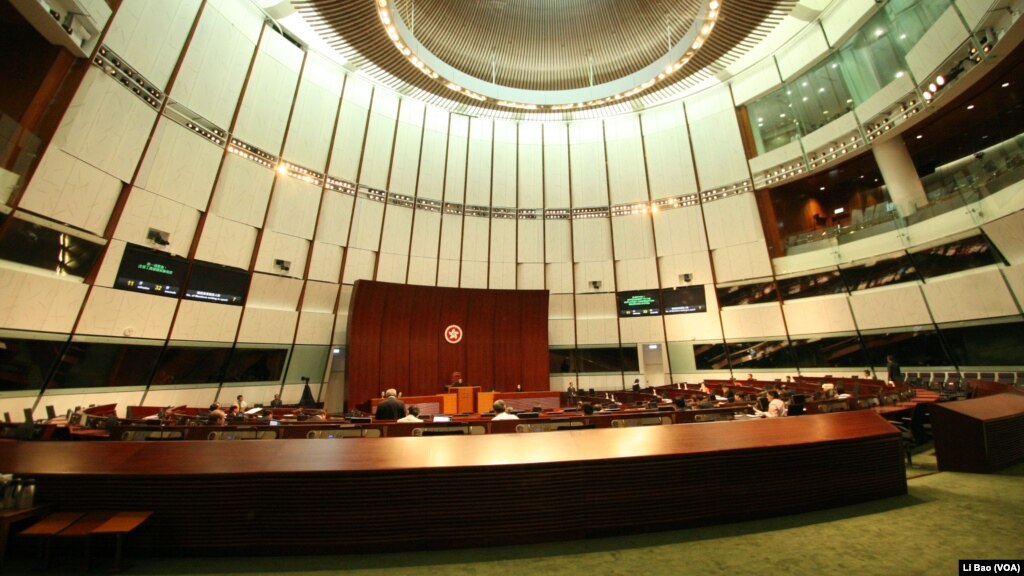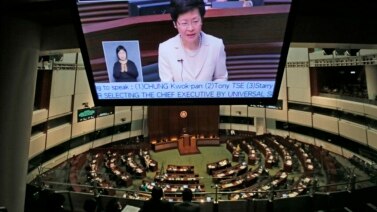
The Hong Kong legislature has rejected a plan that would have let citizens choose the city’s leader. The vote on Thursday came after months of debate and large protests.
Under the rejected plan, the city’s 5 million voters would have been able to vote for the city’s chief executive beginning in 2017. But they would be able to choose only from a list of two or three candidates approved by a 1,200-member committee controlled by mainland China.
Hours after the vote, the Chinese state news service released a statement. It said the electoral reform plan approved by China’s national legislature last August would stay in effect. That plan gives the committee the power to choose the city’s leader.
Some Hong Kong legislators called the rejected plan “fake democracy.”
About 1,000 protestors went to government offices this week during the legislative debate. The group included both supporters and opponents of the plan.
Many legislators were not present for the vote, which happened in the afternoon earlier than expected. At least two-thirds of the 70 legislators would have had to support the plan in order for it to take effect. But 28 of them rejected it. Eight voted in support and one decided not to vote. Moments before the vote, a group of pro-government legislators left the legislative chamber.
Emily Lau leads the city’s Democratic Party.
“Well the whole thing was quite farcical because everybody knew the package would be voted down, but so many of the pro-establishment legislators went out, and so it is really a very farcical end to this very sorry saga.”
Chinese foreign ministry spokesperson Lu Kang said China was disappointed by the vote.
Lu Kang said the Chinese government wants the chief executive of Hong Kong to be elected by popular vote. He said China wants to promote Hong Kong’s democratic development and permit people to choose the chief executive. He said China did not want the Hong Kong legislature to reject the reform plan.
The vote on Thursday followed months of protests. Last fall, tens of thousands of pro-democracy demonstrators blocked the streets of Hong Kong. They demanded the right to choose the city’s leader through direct election. They rejected the Chinese plan to permit voters to choose the city’s leader only from an approved list.
Joseph Cheung is a professor of the City University of Hong Kong. He says the legislators who rejected the electoral reform plan were following the wishes of the people.
“So the pro-democracy legislators actually feel obliged to respond to this demand, because these people are their very foundation of their voters’ support.”
I’m Mario Ritter.
Correspondent Shannon Van Sant reported this story from Hong Kong. Christopher Jones-Cruise adapted it into Learning English. Kelly Jean Kelly was the editor.
Words in This Story
chamber – n. a usually large room where members of a government group, such as a legislature, have meetings
farcical – adj. something that is so bad that it is seen as ridiculous
saga – n. a long and complicated series of events
oblige – v. to do something that someone has asked you to do; to do a favor for someone; obligated
foundation – n. something -- such as an idea, a principle or a fact --that provides support
What is your reaction to the decision by the Hong Kong legislature? We want to hear from you. Write your thoughts in the comments section.
